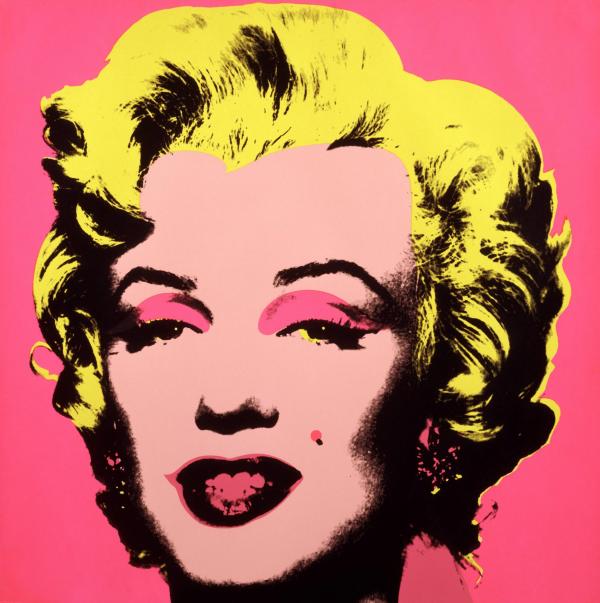Our exhibition Andy Warhol and Eduardo Paolozzi: I want to be a machine, jointly explores the work of the two Pop Art giants, Warhol and Paolozzi – and their equal fascination with machines.
The show’s title takes its theme from Warhol’s much-quoted remark, “I want to be a machine”. Behind this seemingly facetious quip was his serious belief that art would become increasingly mechanised. This forms one of two themes of the exhibition, the other being Paolozzi’s keen interest in the relationship between man and machine.
One person well-versed in such a relationship between man and machine is Scottish poet William (Billy) Letford. Letford has worked, on-and-off, as a roofer in his family’s roofing business since he was 15 years old, frequently interacting with machines whilst working. He is now a well-published poet with a MLitt in Creative Writing from the University of Glasgow and recipient of numerous awards including a Scottish Book Trust’s New Writer’s Award, an Edwin Morgan Travel Bursary and a Creative Scotland Artists’ Bursary, which allowed him to spend six months travelling through India. His poetry has also taken him to Lebanon, Iraq and Palestine. Letford’s books Bevel (2012) and Dirt (2016) were released on Carcanet Press, both to critical acclaim.
In this special National Galleries of Scotland commission, we asked Letford to produce a poem with the relationship between man and machine in mind. His response – Grandfather (1931-2005) – was originally published as The Herald newspaper’s Poem of the Day, collated by Lesley Duncan, and is reproduced below.
Grandfather (1931-2005) by William (Billy) Letford
Underground at fourteen years old. Unable
to read and working within tunnels of
hard noise and heavy machinery, Alex Forson
memorised patterns, routes to the faceline
turns to the quiet places. He recognised friends
by the swing of their headlamps. Prints that
fell one upon the other, movements without
letters but solid with meaning. Toward the
end of his life, on holiday on the island of Ibiza
when he carried a canister of oxygen to help
clear the sparkling dust in the dark tunnels
of his lungs, I complained I couldn’t find the
pharmacy. Take that left, he said, continue
up the hill till you see the green shop front
and the red bin, turn left again at the hotel
with the white floor tiles in the foyer. We’d
been on the island for less than a day. What
surprised me was the colour. Nothing like a
technical drawing. Much more like a painting.
More on William (Billy) Letford can be found at the Scottish Poetry Library and Carcanet Press.


